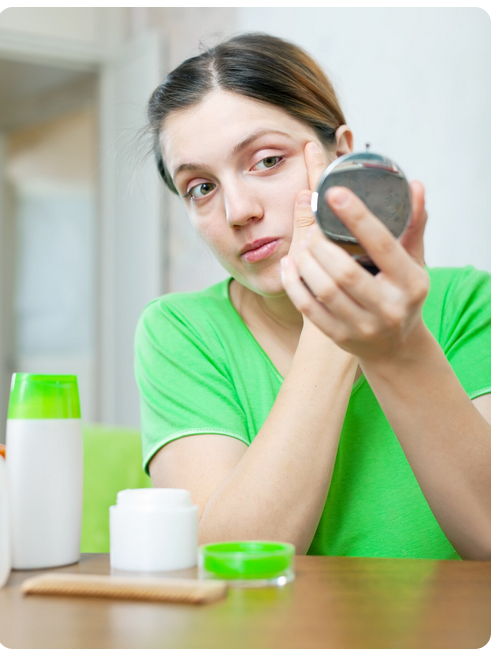Melasma is a chronic skin condition that leads to dark, blotchy patches, typically on the face. While clinical treatments like topical creams, chemical peels, and laser therapy are often effective, many people look to home remedies for melasma or prefer natural melasma treatments due to concerns about cost, sensitivity, or side effects.
But do natural treatments really work for melasma? Let’s take a closer look at popular home remedies—what’s supported by science, what’s potentially helpful, and what’s best avoided.
Understanding Melasma
Before diving into home remedies, it’s important to understand the root of melasma. The condition is triggered by overactive melanocytes (pigment-producing cells) and is influenced by:
- Sun exposure
- Hormonal changes (e.g., pregnancy, birth control)
- Genetics
- Inflammation or skin irritation
Melasma is not just a cosmetic issue—it requires long-term care and management. Natural remedies may help lighten pigmentation and support your skin, but they should be used consistently and cautiously.
Home Remedies for Melasma That May Help
1. Aloe Vera
Why it works: Aloe vera contains aloesin, which may help inhibit melanin production.
How to use: Apply fresh aloe vera gel to affected areas daily. Leave on for 15–20 minutes before rinsing off.
Effectiveness: Gentle and hydrating; may offer mild brightening over time.
2. Turmeric
Why it works: Curcumin, the active ingredient in turmeric, has anti-inflammatory and antioxidant properties and may reduce melanin production.
How to use: Mix 1 tsp of turmeric with yogurt or milk to form a paste. Apply to the skin for 10–15 minutes, then rinse.
Caution: Turmeric can stain the skin yellow temporarily. Use in moderation.
3. Apple Cider Vinegar (ACV)
Why it works: ACV contains acetic acid, which may help exfoliate and lighten pigmented skin.
How to use: Dilute 1 part ACV with 3 parts water and apply using a cotton pad. Rinse off after 5 minutes.
Caution: ACV is acidic and can irritate sensitive skin. Always patch test first.
4. Green Tea Extract
Why it works: Green tea has antioxidant and anti-inflammatory effects, and some studies suggest it may reduce melanin activity.
How to use: Apply cooled green tea bags to the skin, or use creams/serums with green tea extract.
Effectiveness: Mild but beneficial as part of a calming skincare routine.
5. Licorice Extract
Why it works: Licorice contains glabridin, a natural melanin inhibitor, often used in professional skin brighteners.
How to use: Use serums or creams containing licorice extract. DIY options are limited.
Effectiveness: One of the more research-backed natural melasma treatments.
Natural Melasma Treatments with Limited or No Proven Benefits
1. Lemon Juice
Claim: Brightens skin due to its citric acid content.
Reality: Too acidic and can cause irritation, burns, and worsen pigmentation. Not recommended.
2. Baking Soda
Claim: Acts as a gentle exfoliator.
Reality: Highly alkaline, can disrupt your skin’s natural barrier and worsen melasma. Best avoided.
3. Raw Onion or Garlic
Claim: Natural acids may lighten pigmentation.
Reality: Highly irritating, can cause burns or dermatitis. Not safe for facial skin.
Tips for Using Home Remedies Safely
- Always patch test before applying any remedy to your face.
- Be patient: Natural remedies take time to show visible effects.
- Avoid sun exposure after using acidic ingredients like ACV or citrus; they increase photosensitivity.
- Use with sunscreen: Even natural remedies won’t work if you’re not protecting your skin from UV damage.
- Do not combine too many remedies at once; this can lead to irritation and worsen melasma.
A Balanced Approach: Combining Natural and Clinical Treatments
While home remedies for melasma can support skin health, they are typically less effective than medical treatments. For moderate to severe melasma, a combination approach is often best:
| Home/Natural Remedies | Clinical Treatments |
|---|---|
| Aloe vera, turmeric, ACV | Prescription hydroquinone |
| Green tea, licorice extract | Tretinoin or azelaic acid |
| Sun protection + gentle care | Chemical peels, laser therapy (post-pregnancy) |
Final Thoughts
If you’re exploring natural melasma treatments, start with ingredients that are gentle, soothing, and backed by some scientific support—like aloe vera, turmeric, or licorice extract. Avoid harsh DIY methods that can do more harm than good. And remember, the most powerful natural remedy of all is sun protection—every single day.
For persistent melasma, always consult a dermatologist for personalized advice. Home remedies can help, but they are best used as part of a broader skincare and treatment plan.




